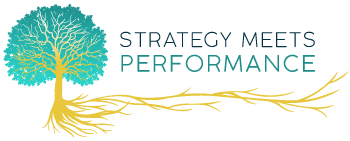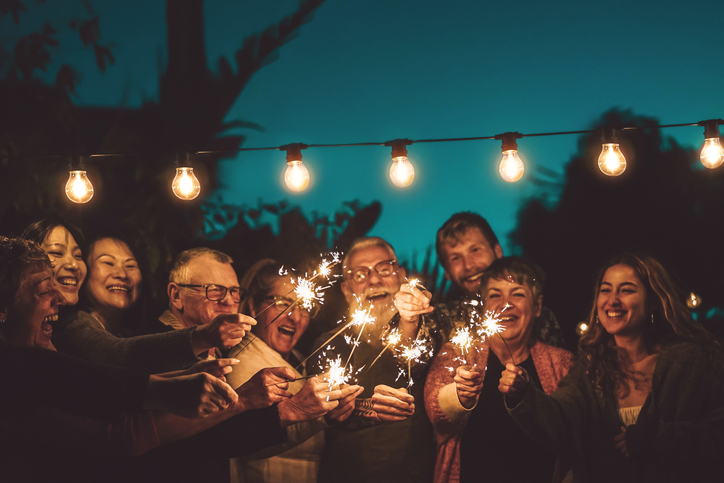As I reveled in family time and positive vibes over the holidays, I also spent time reflecting on what brought joy in 2018.
What stood out were the relationships with my dearest friends and family. It was the conversations and quality time with my spouse, mom and brother about the day to day mundane occurrences and observations, as well as exciting things. It was the FaceTime calls with my relatives in the UK and Australia (that I started capturing on screenshots so I could remember those special moments). It was the dinners with girlfriends that ended with hugs and “I love you’s.” It was the wonderful new women I met and grew with. It was the deep conversations with clients. As I looked forward to the New Year, I decided that aside from professional growth goals, I would make one personal growth goal. (For tips on setting attainable goals, view this article I wrote back in 2012 (Why People Hate Resolutions and Five Steps to Reaching your Goals). I decided one of my goals would be around the connection. To stay better connected with the wonderful people in my life as well as to make new connections by reaching out to new groups and communities.
As it turns out, strong relationships are the key to our good health. “Good relationships keep us happier and healthier,” Dr. Robert Waldinger, a psychiatrist and director of the Harvard Study of Adult Development, said in a viral “TED Talk ” released in 2015.
An ongoing Harvard study by Waldinger [1] (one of the world’s longest studies of adult life, having started in 1938 during the Great Depression) tracked the lives of 724 men with annual check-ins to ask about their work, home lives and health. They not only received questionnaires, but they were also interviewed in their homes, provided their medical records from their doctors, got their blood drawn, their brains scanned and let the researchers talk to their children. After gaining tens of thousands of pages of research data based on these participants, Waldinger said, the clearest message from the study is that “good relationships keep us happier and healthier.”
Waldinger concluded that the first lesson you can take is that “social connections are really good for us and that loneliness kills.”
His research has found that people who are more socially connected to family, to friends, to the community, are happier, they’re physically healthier and they live longer than people who are less well connected. His research points to the fact that keeping to yourself and experiencing loneliness is toxic. Waldinger points out that people can even feel lonely in a crowd of people or in their marriage.
“People who are more isolated than they want to be from others find that they are less happy, their health declines earlier in midlife, their brain functioning declines sooner and they live shorter lives than people who are not lonely,” Waldinger explained.
Eighty-year-old men and women who were happily partnered reported that on the days when they had more physical pain, their mood remained just as happy, while those in unhappy relationships had their physical pain magnified by being in more emotional pain.
If that doesn’t convince you to get out of your comfort zone and get out of the house, I don’t know what will. Feeling too busy, too stretched, a little shy? Here are five steps to kick this off:
- Be the change. Don’t say “That friend never calls me!” Be the one who reaches out! Keep in touch beyond the holiday cards — initiate a coffee or lunch. I’ve done this so many times where the person responds with, “Thank you so much for calling me, I appreciate it so much!!” Rather than judge that a person is not calling, I observe their reactions when I do reach out. The surprise, the joy, the gratitude at the end of the call. The willingness and flexibility to meet up. Notice the awesome way people respond. My friend Stacie, who I see a few times a year picks up and it’s as if we spoke last week, even though it was five months ago. With close friends, there is such a depth of closeness that time stands sill. What a gift that is!
- Get creative. Reach out in new ways. Your community, neighbors, meet-up groups, industry groups, volunteer. There are meet-up groups for almost any interest you can think of….pets, cars, mindfulness, martial arts, tennis, film. You will also find many points of interest within industry groups. More likeminded people to share ideas with. Also consider neighbors. They are right there and why not change the statistics for yourself? According to a 2018 study from Pew Research, only 31 percent of Americans living in urban areas say they know all or most of their neighbors. Consider hosting a gathering, going to a community meeting together or just having a coffee. I’ve been blessed with the most wonderful neighbors – and it came from reaching out. Again, be the change.
- Look at what you do have. When we lost a dear family member, I lamented for a long time at the loss, not seeing the many beautiful family members I did have. When you stop and examine your reality, you will often see there are so many people in front of your face who you can deepen your relationships with.
- Get out of the house! When I’m invited to a gathering – unless I cannot physically show up because of travel, I always go. My husband and I have met so many great people and learned so many new things from just showing up somewhere, that we always say, “You never know what happens when you get out of the house!” On New Year’s day, we decided to drive to my friend Karen’s house in L.A. for her “Welcoming of the New Year” celebration. Yes, it was a long drive, but no matter. Seeing her bright beautiful face, her partner and her friends made it all worth it. And I met Holly, a brilliant entrepreneur who I completely connected with. The sit-in-a-corner-and-talk-for-30 minutes-type of vibe, as if you’ve known each other forever.
- Talk to strangers. That stranger could easily be a friend you just haven’t met yet. Chat with strangers – most of your friends were once just guests at the same party, customers of the same coffee shop or participants in the same industry group. You can just be curious about people. Conversation starters can include commenting on what someone is reading, eating, drinking. Yes, the weather can work. Does the person have a pet or a child with them?
I will do all of these things with the hopes of making new friends this year. I can’t really make a numerical goal on how many friends I want to make as it has to be organic, but I can say that I’ll go to three outreach events a month. And from each one, if I meet someone interesting, I’ll initiate a coffee or meal. If creating and deepening relationships becomes one of your aspirations, create steps to make it happen and enjoy the ride.
[1] Mineo, L. 2017. Health and Medicine: Good Genes are Nice But Joy is Better. The Harvard Gazette. April 11, 2017. https://news.harvard.edu/gazette/story/2017/04/over-nearly-80-years-harvard-study-has-been-showing-how-to-live-a-healthy-and-happy-life/




